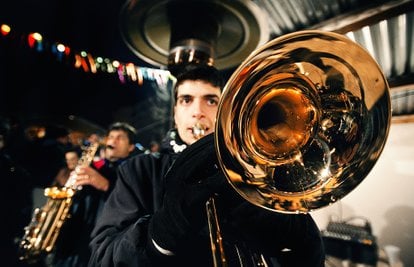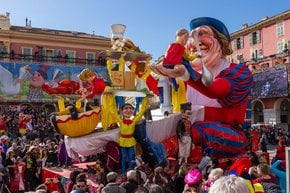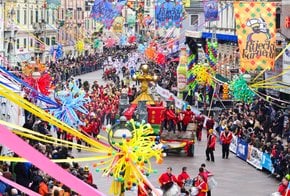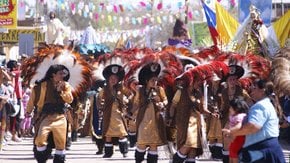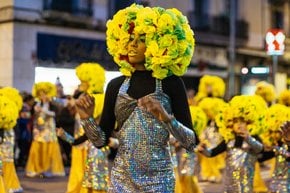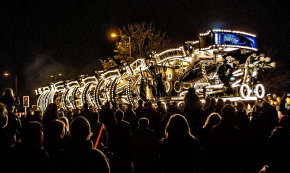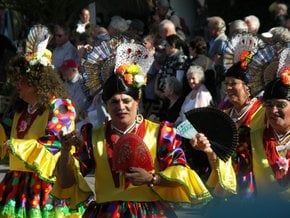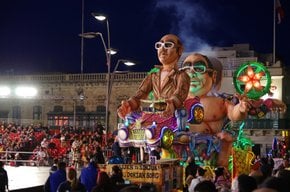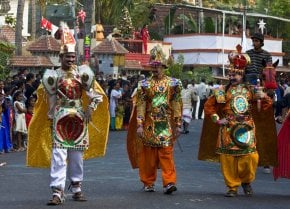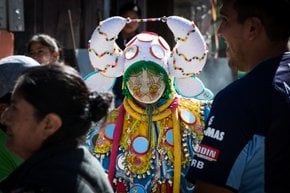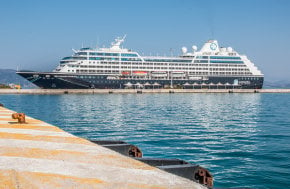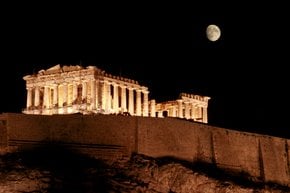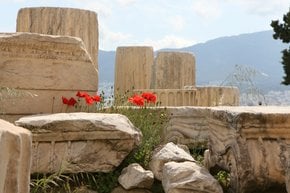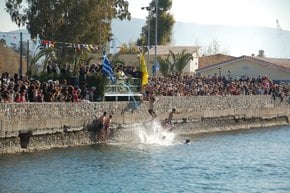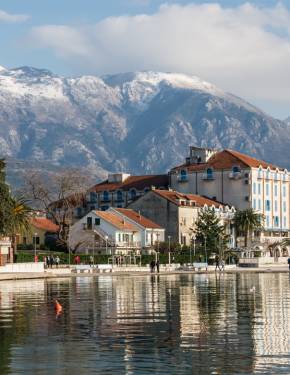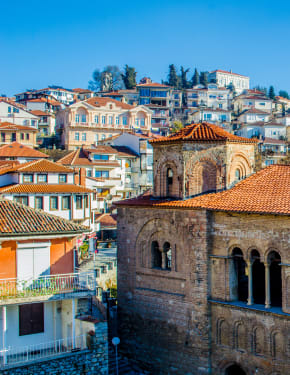Apokries or Carnival 2025 in Athens
Before the long-lasting fast, Greeks feast on meat at a huge party that stretches over three weeks
Dates: February 9–March 2, 2025
Apokries, often referred to as the Greek Carnival, is a vibrant and lively festival celebrated in Athens before the onset of Lent. With colorful parades, traditional foods, and a variety of activities for all ages, this event offers a unique glimpse into Greek culture and customs.
Apokries, which literally means "saying goodbye to meat," is a fitting farewell to meat, given the abundance consumed during the three weeks leading up to Lent. While meat dishes are the centerpiece of the celebrations and the aroma of barbecue wafts through the streets of Athens, the Carnival also showcases a variety of other foods and lively costume parades.
Festivities and Activities
At the heart of Apokries are its joyful street parades, which feature satirical floats, traditional costumes, and music performances. Throughout the festival, attendees can explore food stalls offering local delicacies. Live music and dancing contests are planned for various locations, while entertainers, face painting, and costume competitions will keep younger participants engaged.
Schedule and Key Dates
The dates for Apokries vary each year, typically falling between February and early March. The Carnival spans three exciting weeks, culminating in the most significant events during the final days. February 20, known as Smoke or Burnt Thursday (Tsiknopempti), marks eleven days before the start of Lent. The main parades are set for March 1-2, with vibrant performances and festivities taking place in key areas like Syntagma Square and various community neighborhoods to ensure widespread participation.
The final day of the Carnival coincides with the beginning of Lent, celebrated as Clean Monday or Ash Monday (March 3). During this time, meat is already off the menu, and instead, people enjoy a variety of olives and seafood. Traditional dishes such as shrimp, octopus, taramasalata, and halvah make this a delightful and festive culinary experience.
Admission and Practical Information
Admission to many events, such as street parades and public performances, is free. However, indoor concerts or special activities may require tickets. Parking in central Athens can be limited during the festival, and public transportation is recommended for getting around. Athens’ metro, trams, and buses will run on extended schedules to accommodate the influx of visitors.
Location and Nearby Attractions
The Apokries Carnival is held throughout Athens, with events taking place in public squares, community centers, and popular streets. While in the city, visitors can also explore historical landmarks like the Acropolis, the Plaka district, and the National Archaeological Museum, all easily accessible from festival venues.
For those willing to venture beyond Athens, nearby attractions such as Cape Sounion and its Temple of Poseidon provide a serene escape from the carnival’s bustling atmosphere.
History
The roots of Apokries date back to ancient Greece, with ties to Dionysian festivals that celebrated fertility and rebirth. Over the centuries, the celebration evolved to incorporate Christian traditions, symbolizing a farewell to indulgences before Lent. Apokries’ modern form, with its lively parades and satirical floats, emerged in the 19th century and has since become a cherished part of Greek cultural heritage.

